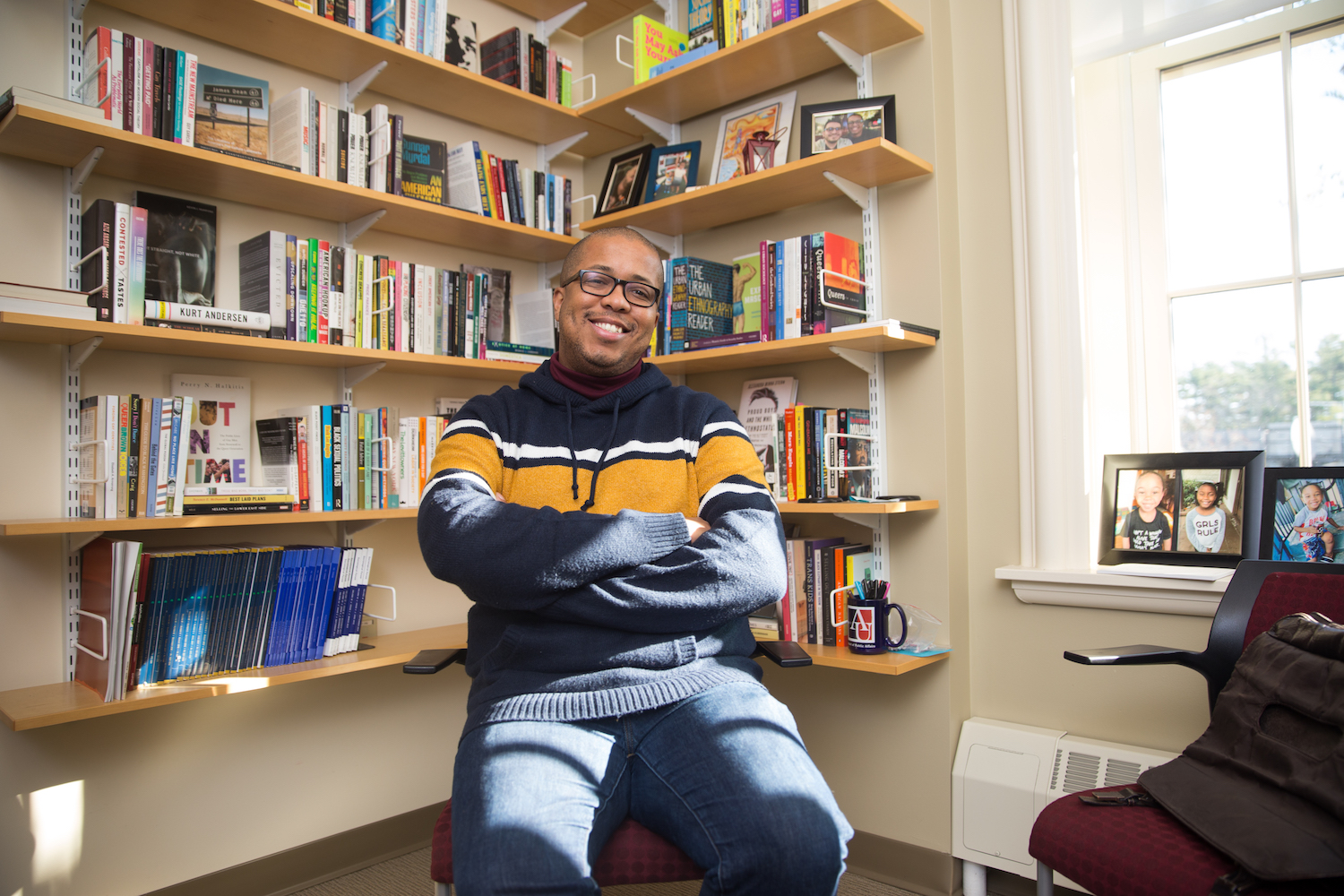Professor Theo Greene stays busy after sabbatical
November 8, 2019
From conducting cutting-edge research in the nation’s capital to publishing an article about the preconception of gay areas as white, Assistant Professor of Sociology Theo Greene has done it all.
During his sabbatical in Washington, D.C. last year, Greene was a visiting faculty in residence for the Metropolitan Policy Project at American University. In the past year, Greene has been busy researching and writing his upcoming book, “Not in MY Gayborhood! Gay Neighborhoods and the Rise of the Vicarious Citizen.” He also attended the American Sociological Association Conference to promote his book, conducted a series of talks for Bowdoin’s LGBTQ+ alumni group, published an article about the preconception of gay areas as white and served on the faculty committee for the new Urban Studies minor.
Before Greene left for sabbatical, he felt confident in the structure of his book, which looks at queer placement in Washington, D.C., but this changed after conducting research at American University.
“I thought I had a framework that explained vicarious citizenship, which argues that people invested in gay neighborhoods are not residents of them,” Green said. “But while I was there I also added a second framework to the book that explores how people actually turn on and turn off ‘place’ as they need to, to sort of mobilize community. So I’ve added this notion of place reactivation as well.”
 Ann Basu
Ann BasuThe book is set to release by the end of 2020, which means Greene is currently writing his book while teaching courses at Bowdoin.
“When you teach two extremely full classes—I have a first year seminar and then a class with 42 students in it—that means a lot of grading and a lot of time spent trying to work with students,” Greene said. “It’s been really hard to get some of that work done.”
On top of that, Greene is also part of the core faculty group involved in developing the Urban Studies minor, which is set to launch next fall. He helped design the curriculum and is now helping to get the program off the ground.
Working with students, though, has been one of Greene’s favorite parts of returning to Bowdoin. However, it has not been an easy transition.
“Teaching, when you haven’t taught in 16 months, is kind of like an [out of shape] muscle,” Green said. “Getting back those sea legs was a little bit of a challenge, but it was also really gratifying to know that students really missed me not being here. It’s been a challenging transition, but at the same time, a very rewarding one.”
Greene has many responsibilities, but he acknowledges that his voice contributes a unique perspective to an overwhelmingly homogenous campus.
“Being a faculty member of color [and] also being a gay faculty person of color, at a place like Bowdoin, you’re often called on to do a lot of other things as well,” Greene said. “So you know, it can be a really big challenge to be part of a lot of conversations.”
Looking to the future, Greene has plans to collaborate with Bowdoin students to create a map of Portland, Maine that identifies certain queer places and spaces around the city and uncovers their history using interviews and archival research.
“I already have a lot of student interest in helping me collect some of the interviews, some of the ethnographic work [and] doing some of the historical archiving,” Greene said.
Greene hopes to begin the Portland project next summer. Until then, he has a host of other engagements to keep him busy, including articles on queer placemaking and the role of gay bars in forming community.
How does Greene manage all of these commitments?
“I don’t sleep,” he said. “That’s how I manage.”

Comments
Before submitting a comment, please review our comment policy. Some key points from the policy: